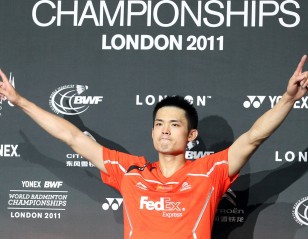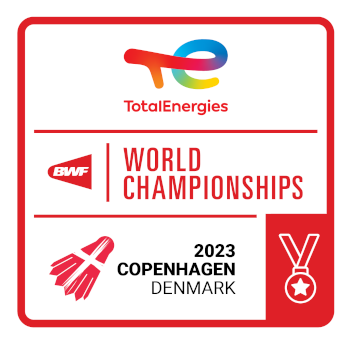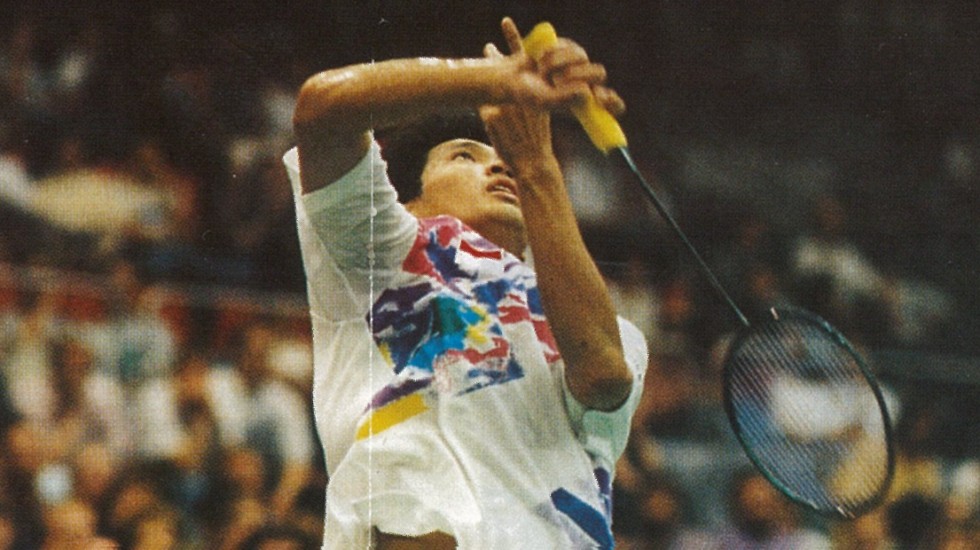
Gold and Glory for Arbi – Throwback ’95 World C’ships
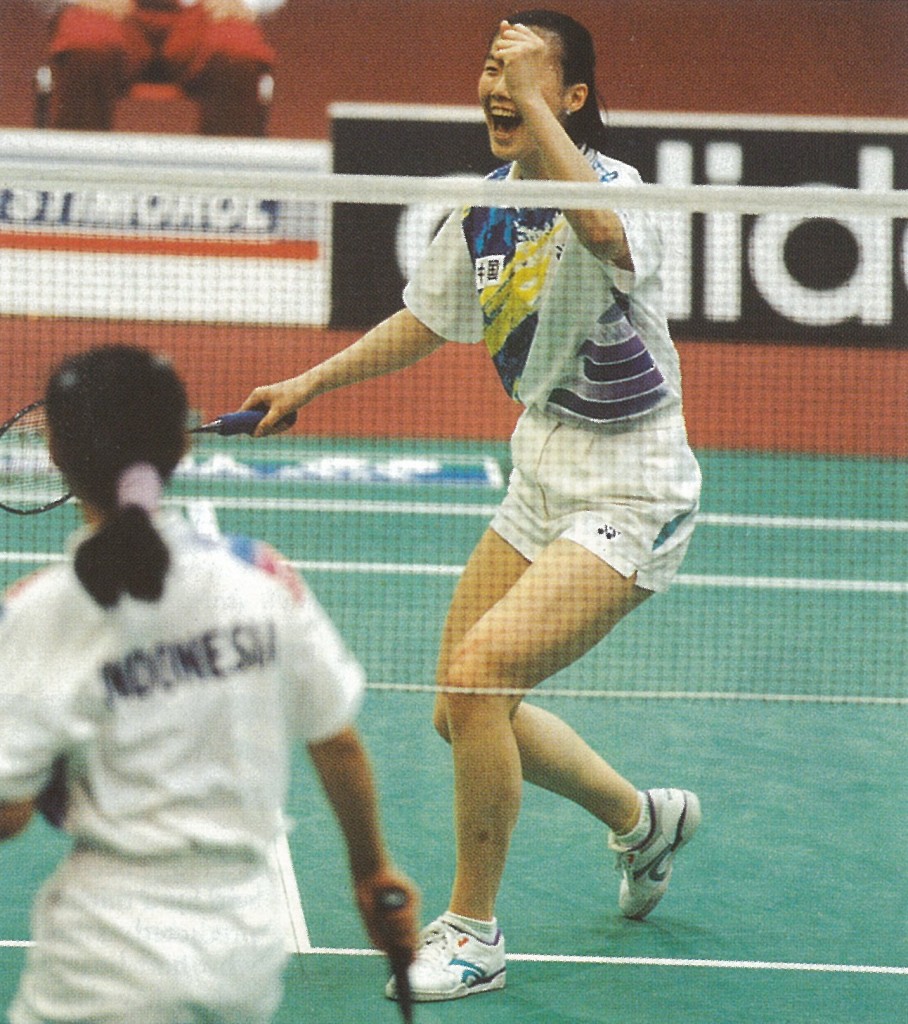
Basel in Switzerland will host the TOTAL BWF World Championships 2019 from 19 to 25 August – 24 years after the country last hosted the event.
It was in 1995, Lausanne, that the World Championships last visited Switzerland. It was a time when the Sudirman Cup and the World Championships were conducted together.
Indonesia, winners of the inaugural Sudirman Cup in 1989, had a well-balanced team – boasting such names as Heryanto Arbi, Susi Susanti, Rexy Mainaky, Ricky Subagja and others. But a plucky young Chinese squad spearheaded by Sun Jun and Ye Zhaoying surprised the Indonesians for their first Sudirman Cup title.
Susanti, the Olympic champion, had fallen to Ye Zhaoying in the first match of the final to Ye Zhaoying, and the Indonesians never recovered, crashing 3-0.
The very next week was the World Championships. Susanti, who had in the run-up to the two tournaments adopted a more attacking game, eased into the women’s singles semifinals – but then again ran into her tormentor from the previous week. The Chinese was again well prepared for her legendary opponent, and after a first game win for the Indonesian, Susanti was made to look sluggish as the lanky Chinese eased home 5-11 11-8 11-2.
“There were gaps in all corners of her court – and I found them,” said the world No.6 from China.
The other semifinal would see the Olympic runner-up, Bang Soo Hyun, fall to another Chinese, Han Jingna. Ye Zhaoying broke no sweat in swatting aside her compatriot 11-7 11-0 in the final.
In men’s singles, top seed Heryanto Arbi had recovered from his Sudirman Cup loss to Sun Jun and made his way into the final without dropping a game.
The other half of the draw saw a painful end to Thomas Stuer-Lauridsen’s career. Having stormed past Rashid Sidek (Malaysia) 15-10 15-1 in the quarterfinals, Lauridsen continued to fly high against Korea’s Park Sung Woo. Up a game and 5-1, he went for a round-the-head shot and crumbled to the floor in pain – his knee having given way.
Park proved a feisty competitor in the fast-paced final. The Korean had leads in both games, but Arbi upped the pace when he had to, and he closed it out 15-11 15-8.
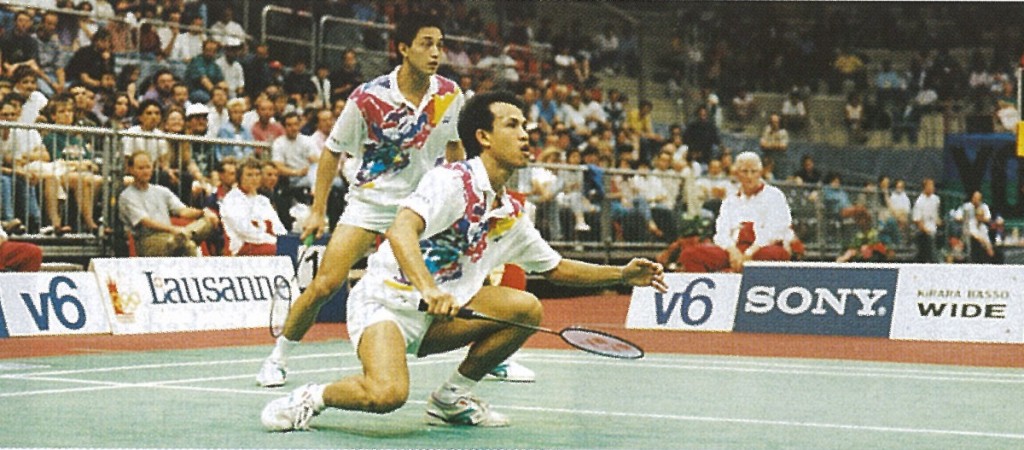
Indonesia had another triumph to savour – in men’s doubles – through Rexy Mainaky and Ricky Subagja. The Indonesians followed up on their success at the World Grand Prix and All England titles with the World Championships gold – without dropping a game in Lausanne. A 15-8 15-6 semifinal win over Malaysia’s Cheah Soon Kit/Yap Kim Hock was followed by an even more impressive 15-5 15-2 victory over Denmark’s Thomas Lund/Jon Holst-Christensen.
In women’s doubles, Gil Young Ah/Jang Hye Ock made history as they became the first Korean women’s doubles pair to win the World Championships.
This they did in a well-contested final against Indonesia’s Finarsih/Lili Tampi, 3-15 15-11 15-10.
The Koreans had earlier stopped China’s Ge Fei/Gu Jun and Qin Yiyuan/Tang Hetian in the previous two rounds.
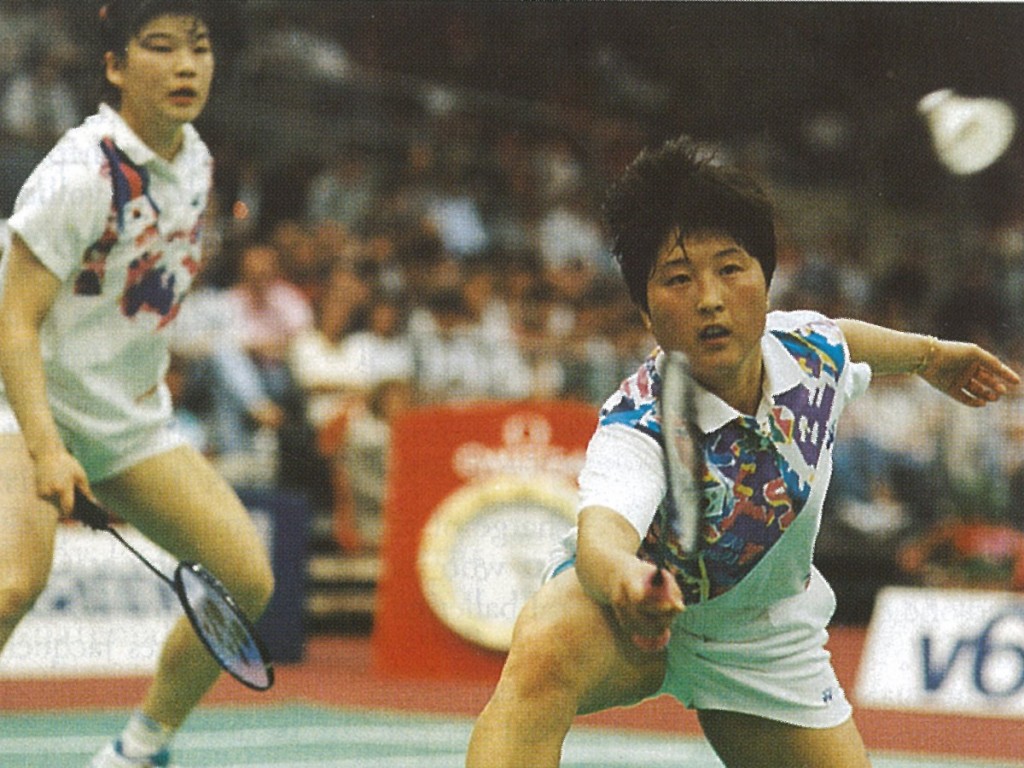
The final witnessed see-sawing fortunes, as the Koreans ran up a 12-1 lead in the second game, but the Indonesians recovered to 10-12, rattling the Koreans. Gil Young Ah attempted to break their momentum with a towel break – for which she was warned by the umpire – but it served to distract the Indonesians. The critical point won, the Koreans went on to dominate the remainder of the match and capture a historic gold.
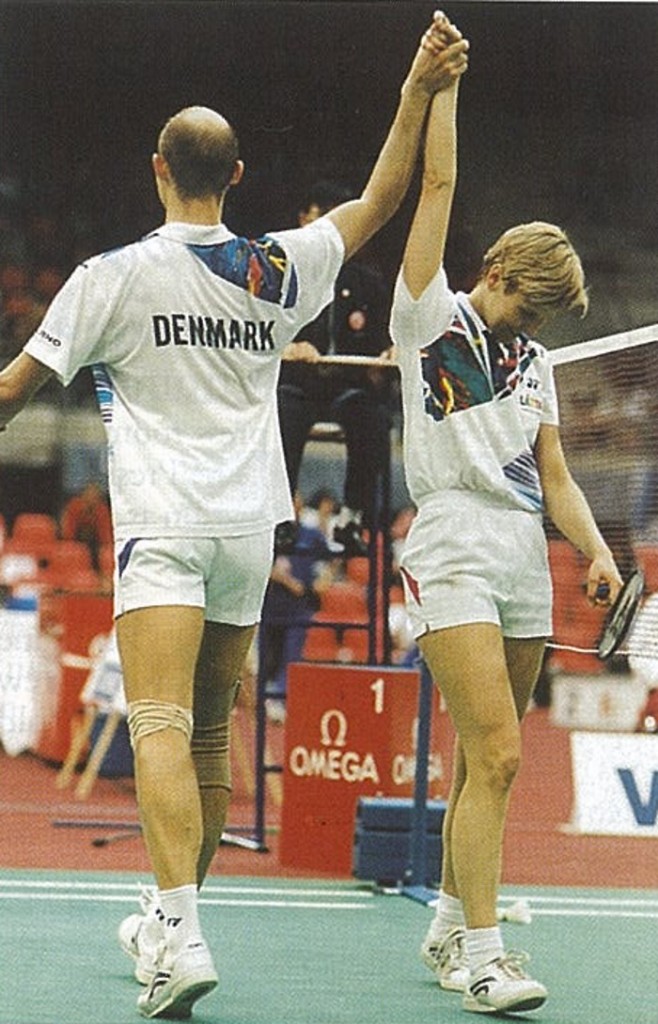
The mixed doubles was expectedly won by Denmark’s Thomas Lund/Marlene Thomsen, who had won 11 tournaments in a row and were unbeaten in 18 months previously.
Still, the favourites only narrowly scraped through their semifinal against Sweden’s Jan-Eric Antonsson/Astrid Crabo after facing match point, and then proved too good for compatriots Jens Eriksen/Helene Kirkegaard in the final, 15-2 15-6.
Basel will once again host the world’s best players as they seek glory. Additionally, Basel will also have the privilege of hosting the world’s best Para badminton players for the Para Badminton World Championships – the first time the two events are being held together.
Lausanne 1995 in Numbers
(World Championships & Sudirman Cup)
Number of Players: 554
Countries Represented: 60
Shuttles Used: 9516
Average Shuttles Per Match: 9.19
Matches Played (WC): 627
Matches Played (SC): 409
World Championships News
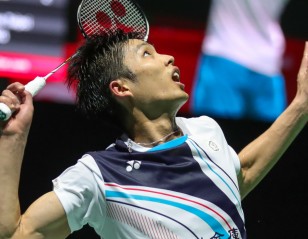
Lessons Learnt, Parting Perspectives 14 September 2019
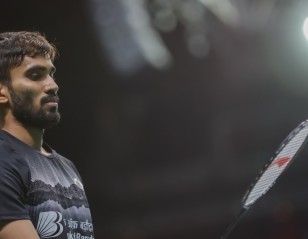
Kidambi Srikanth – A Search for Form 13 September 2019
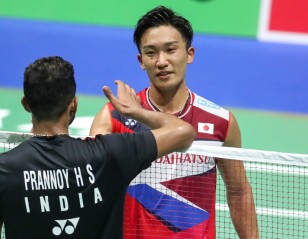
Momota, in the Eyes of his Opponents 12 September 2019
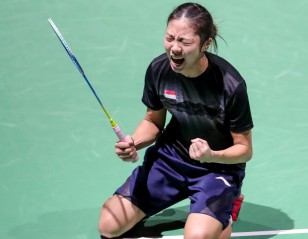
Recap: Upsets at the World Championships 10 September 2019
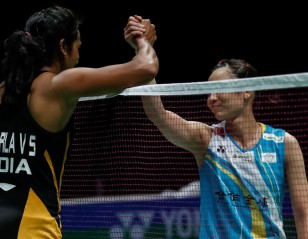
Recap: Memorable Matches of the World Championships 8 September 2019
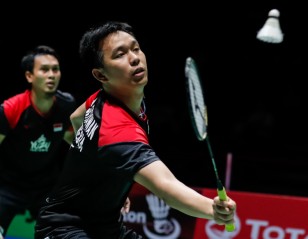
Highlights of the World Championships 7 September 2019
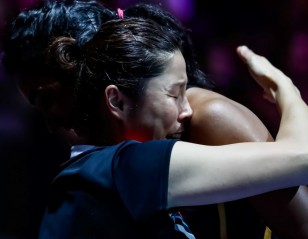
Played ‘Two’ Perfection – Basel 2019 4 September 2019
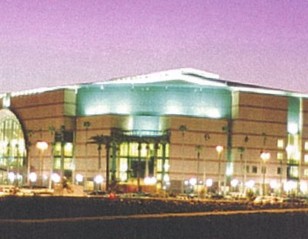
Badminton, Ice Hockey and the World Championships 4 September 2019
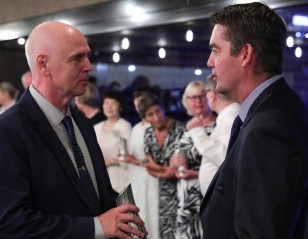
Three-Event Titan – 25th Edition World C’ships 3 September 2019
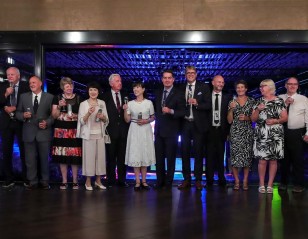
Legends of ’77 – 25th Edition World C’Ships 31 August 2019
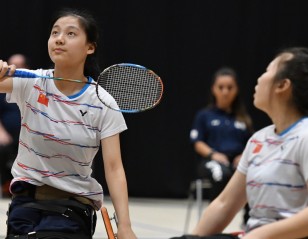
Para Badminton Event Comes to a Close – Basel 2019 27 August 2019
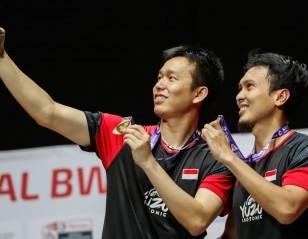
Wristy Trickery Wins the Day – Basel 2019 26 August 2019
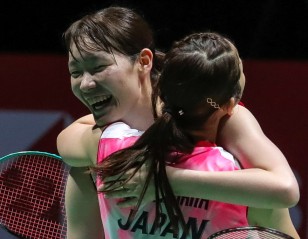
Great Comeback Falls Short – Basel 2019 26 August 2019
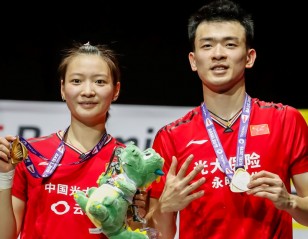
Mixed Doubles ‘Great Wall’ Intact – Basel 2019 26 August 2019
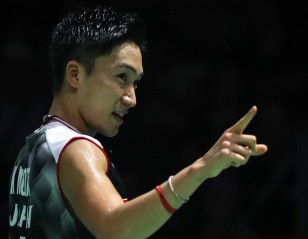
Antonsen Bows to Momota’s Class – Basel 2019 25 August 2019
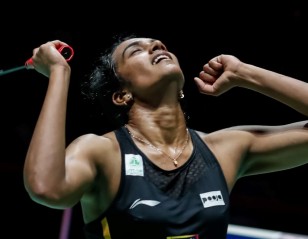
Gold – At Last! – Basel 2019 25 August 2019
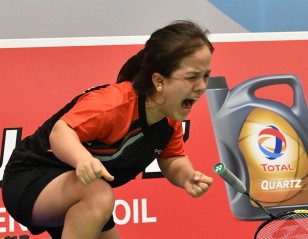
Poveda Makes It a First for Peru – Basel 2019 25 August 2019
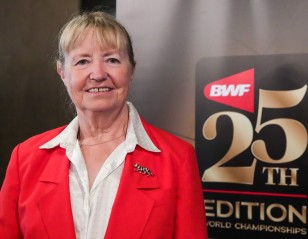
Legend Who Broke Records and Paved the Way for Future Stars –... 25 August 2019
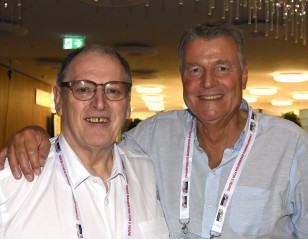
Ray’s a Real Sport – 25th Edition World C’Ships 25 August 2019
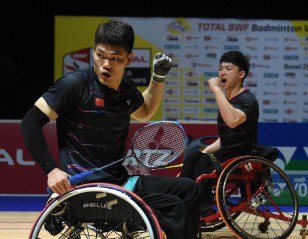
China Take Two Gold – Basel 2019 25 August 2019
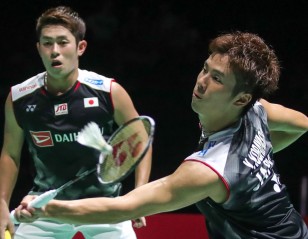
‘Upsetting’ Night for China – Basel 2019 24 August 2019
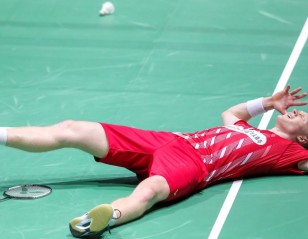
Antonsen’s ‘Insane’ Dream – Basel 2019 24 August 2019
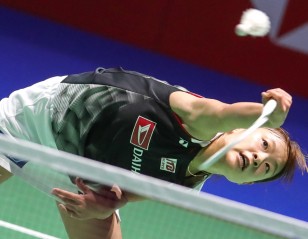
Glasgow ’17 on the Cards – Basel 2019 24 August 2019
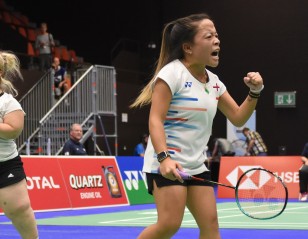
Five Down, Seventeen to Go – Basel 2019 24 August 2019
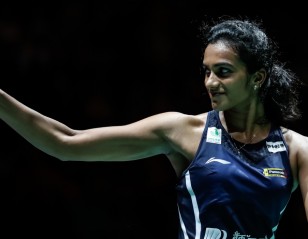
Sindhu Assures Herself: Tomorrow Will Be Different 24 August 2019
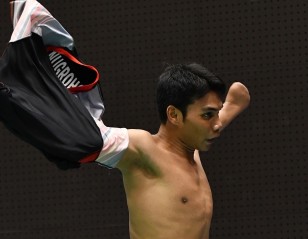
Para Badminton Athletes Turn It Up a Notch – Basel 2019 24 August 2019
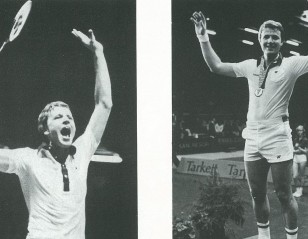
Flaming Dane Set Courts Aglow – 25th Edition World C’Ships 24 August 2019
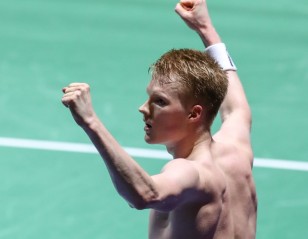
Antonsen Delivers for Europe – Basel 2019 23 August 2019

Du/Li Stand Tall After 2-Hour Epic – Basel 2019 23 August 2019
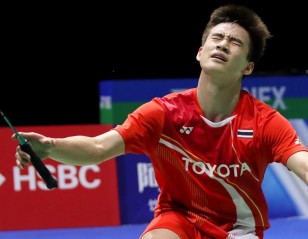
Kantaphon Leads Thailand’s Record Haul – Basel 2019 23 August 2019
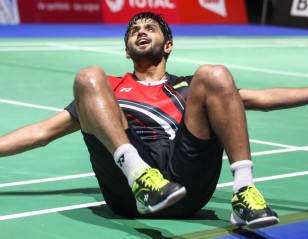
Sensational Session for India – Basel 2019 23 August 2019
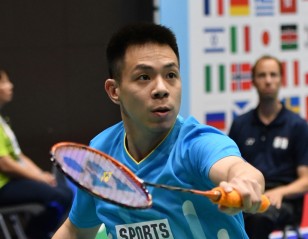
Tall Order for Standing Men – Basel 2019 23 August 2019
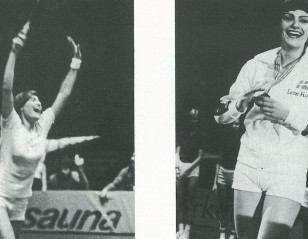
Crowd Pleasing Superstar – 25th Edition World C’Ships 23 August 2019
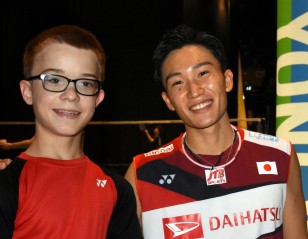
Teenage Shuttler Meets His Idol – Basel 2019 23 August 2019
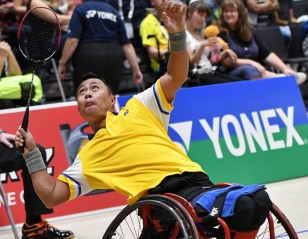
Wheelchair Top Seed Toppled – Basel 2019 23 August 2019
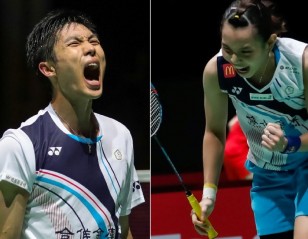
‘Two’ Much Trouble! – Basel 2019 22 August 2019
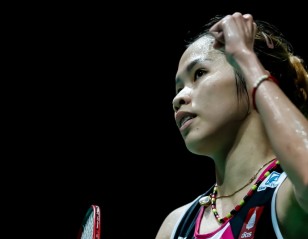
Intanon Survives Scare – Basel 2019 22 August 2019
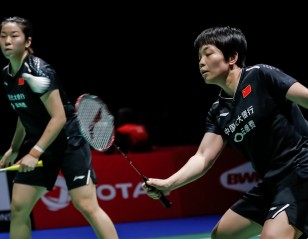
BWF Statement – TOTAL BWF World Championships 2019 22 August 2019
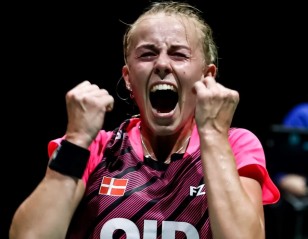
Belated Birthday Blitz! – Basel 2019 22 August 2019
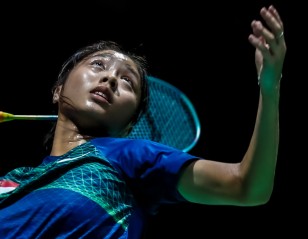
Back Problem Doesn’t Stall Jia Min – Basel 2019 22 August 2019
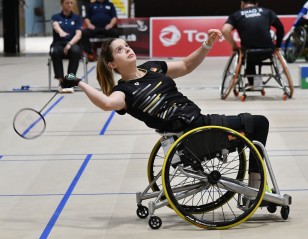
Girl Power – Basel 2019 22 August 2019
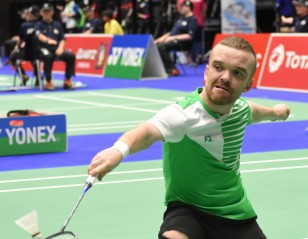
Group Rounds Move into Main Draw – Basel 2019 22 August 2019
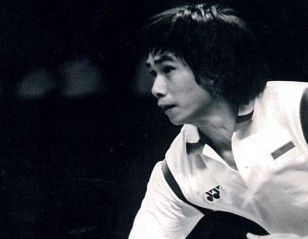
Lessons from the Seventies – 25th Edition World C’Ships 22 August 2019
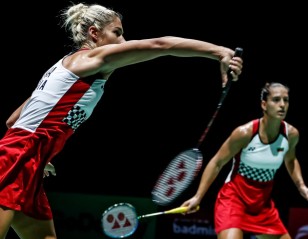
Women Getting in Gear – Basel 2019 21 August 2019
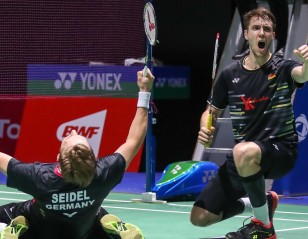
German Shock for Fifth Seeds – Basel 2019 21 August 2019
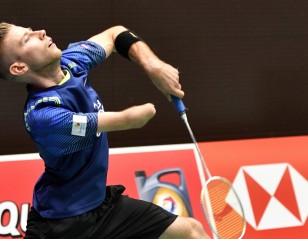
I Feel at Home says Mroz – Basel 2019 21 August 2019
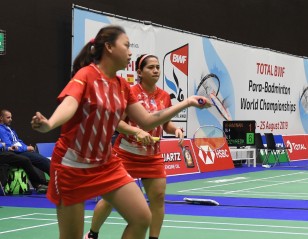
The Power of the Mind – Basel 2019 21 August 2019
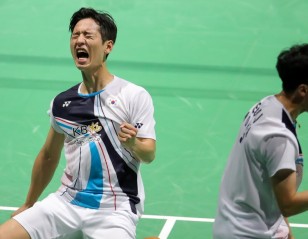
Minions Crash Land at Worlds Yet Again – Basel 2019 21 August 2019
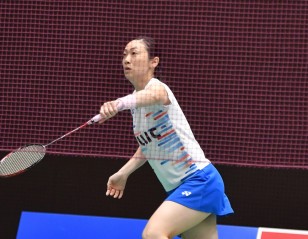
Suzuki Banks on Experience Over Age – Basel 2019 21 August 2019
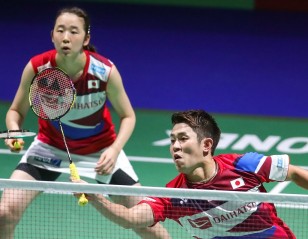
Nagahara ‘Mixing It Up’ – Basel 2019 20 August 2019
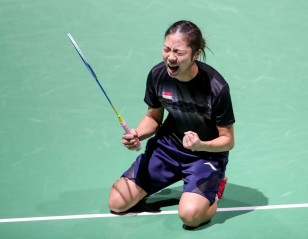
Jia Min Ousts Top Seed – Basel 2019 20 August 2019
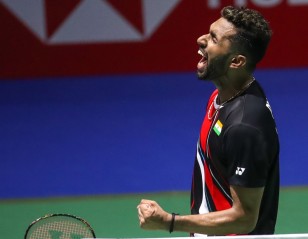
Lin’s Challenge Sputters Out – Basel 2019 20 August 2019
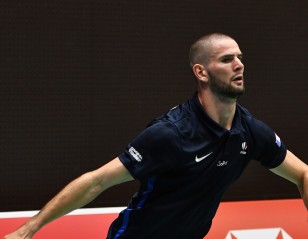
Mazur On Track to Retain Crown – Basel 2019 20 August 2019
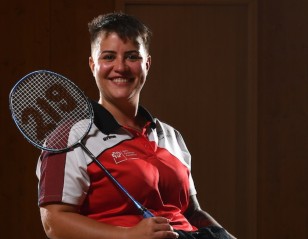
Trading One Set of Wheels for Another 20 August 2019
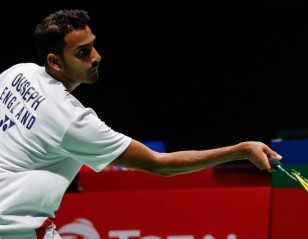
Ouseph Exits Stage, Bids Goodbye – Basel 2019 19 August 2019
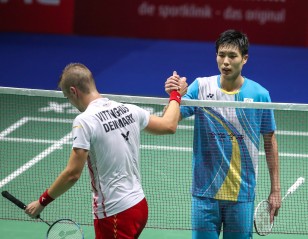
Chou Survives Danish Test – Basel 2019 19 August 2019
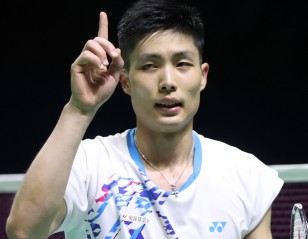
A Title Dedicated to a Battle Against Cancer 19 August 2019
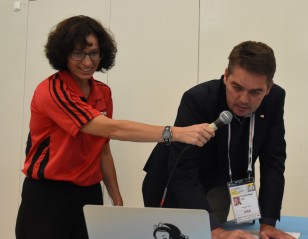
Draw Provides an Even Playing Field for All 18 August 2019
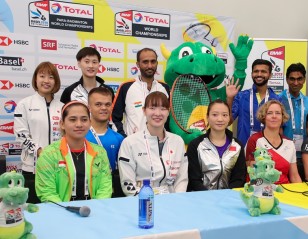
Para-llel Event a Unique Experience for Badminton Fraternity 18 August 2019
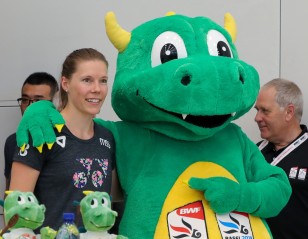
An Occasion to Cherish for Jaquet – Basel 2019 18 August 2019
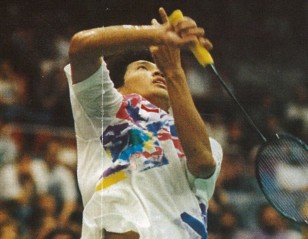
‘100 Watt Smash’ that Lit Up Lausanne – 25th Edition World C’Ships 17 August 2019
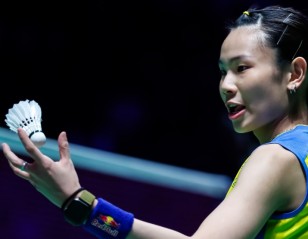
Preview: Worlds of Opportunity 17 August 2019
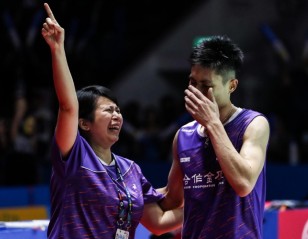
By Chou’s Side 16 August 2019
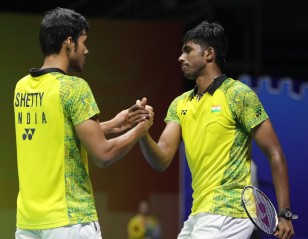
Satwik/Chirag to Miss World Championships 16 August 2019
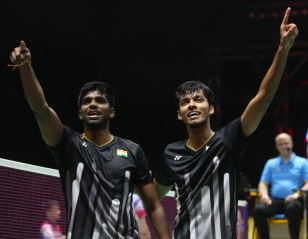
Indian Pair Blazes a Trail 15 August 2019
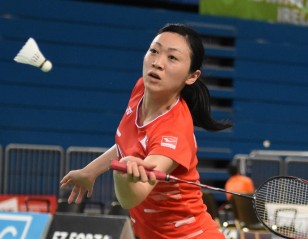
Awesome Threesome of SU5 – Para Badminton World C’Ships 14 August 2019
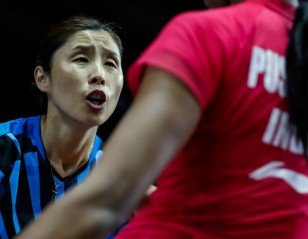
Life Lessons, From Coach Kim Ji Hyun 14 August 2019
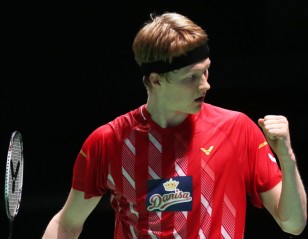
Free of Pressure, Antonsen Senses His Chance 13 August 2019
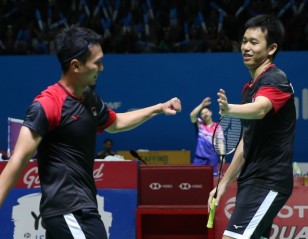
Ahsan/Hendra Play it Cool Despite Hot Form 11 August 2019
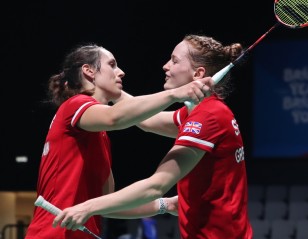
England Duo Anticipate Fruitful Week in Basel 10 August 2019
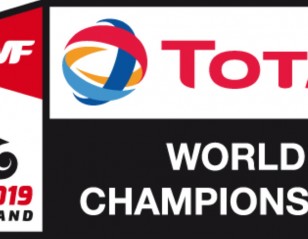
Women’s Singles Re-Draw – TOTAL BWF World Championships 2019 9 August 2019
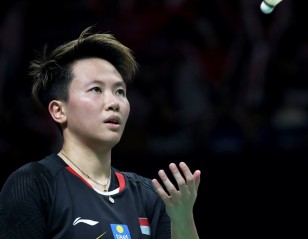
Winny Will Need Support: Liliyana Natsir 8 August 2019
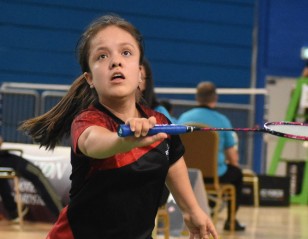
Sports Upbringing Gives Edge to Poveda 7 August 2019
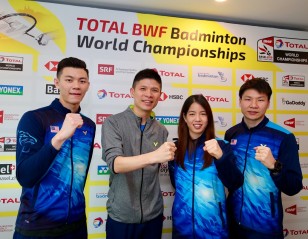
World Championships Draw Released 5 August 2019
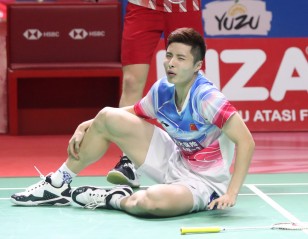
Marin, Shi Join Axelsen on Sidelines 5 August 2019
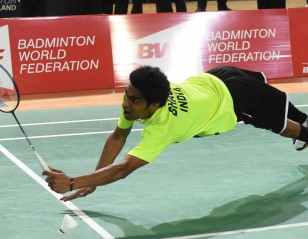
New Para Badminton Chapter Unfolds in Basel 1 August 2019
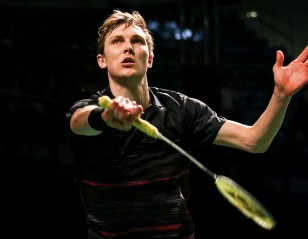
Injured Axelsen Withdraws From World Championships 31 July 2019
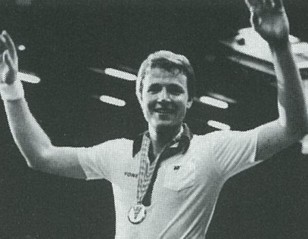
From Malmo to Basel – 25th Edition World C’Ships 30 July 2019
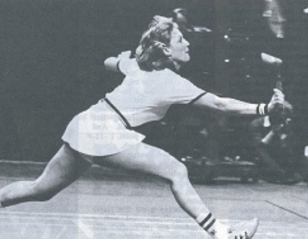
Famous Five and the Good Old Days – 25th Edition World C’Ships 19 July 2019
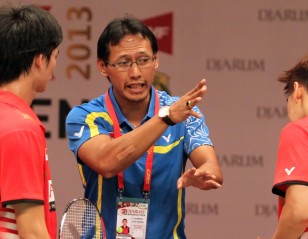
Revisiting a Hero: Sigit Budiarto 11 July 2019

History Beckons Zhang Nan 10 July 2019
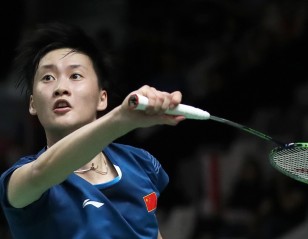
Chen To Lead China’s Charge 9 July 2019
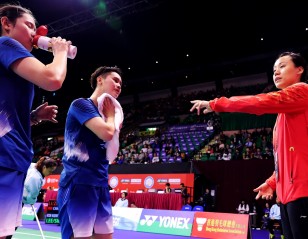
19 Days Left To Register for World Coaching Conference 26 June 2019
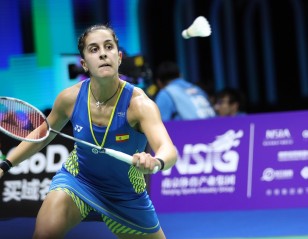
Marin on the Mend and Eyes Return 22 June 2019
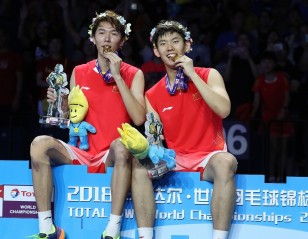
Two Months To Go – World C’Ships Countdown 19 June 2019

Li & Liu – Stepping Up When It Matters 7 June 2019
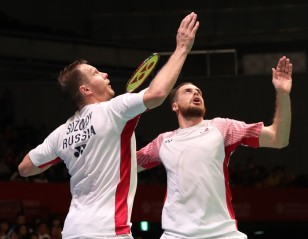
Ivanov & Sozonov Rekindle The Fire 3 June 2019
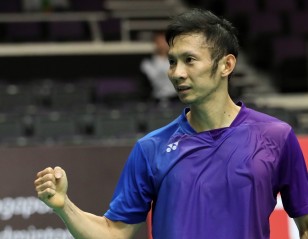
Tien Minh – Veteran Still Chasing His Dreams 2 June 2019
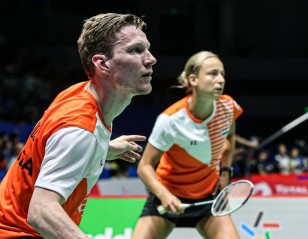
Confidence Boost for Dutch Duo 1 June 2019
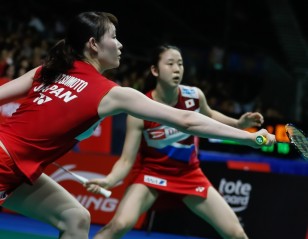
Matsumoto & Nagahara: Rapid Ascent to Pinnacle 8 May 2019
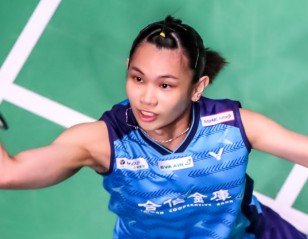
Tai Eases into Top Gear 25 April 2019
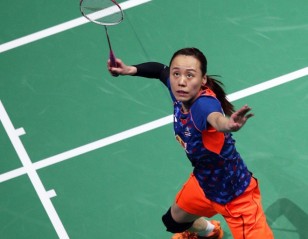
Zhao Yunlei Star Speaker at Coaching Conference 24 April 2019
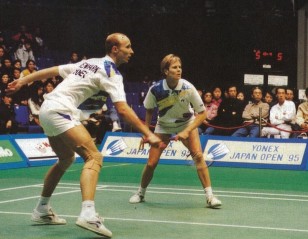
‘The Physical Level Has Gone Up’ 22 April 2019
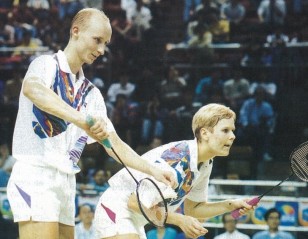
Memories of Lausanne 1995 20 April 2019
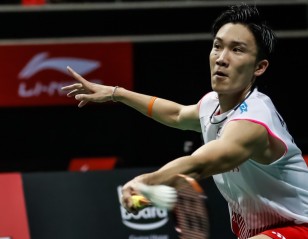
Momota Sets the Pace, but Speedbreakers Lurk 18 April 2019
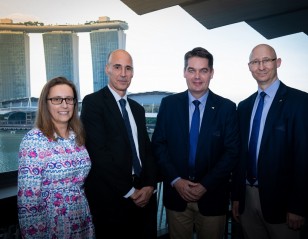
BWF and Total Celebrate Five Years of Partnership 18 April 2019
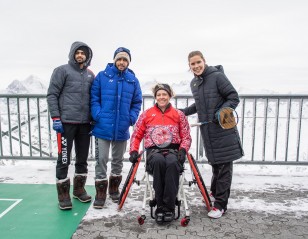
Badminton Thrust into Bright Lights – World C’Ships 13 March 2019

GoDaddy Extends Major Events Partnership with BWF 11 February 2019
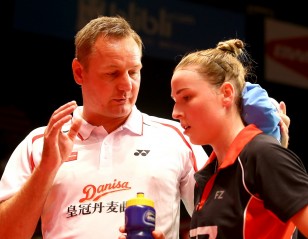
Star speakers assembled for BWF World Coaching Conference 2019 30 January 2019
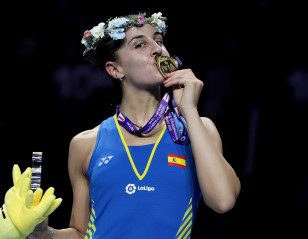
Singles Champions – Down the Ages 20 December 2018
